Embry-Riddle Army ROTC Cadets Hone Skills, Gain Real-World Experience Through Internships
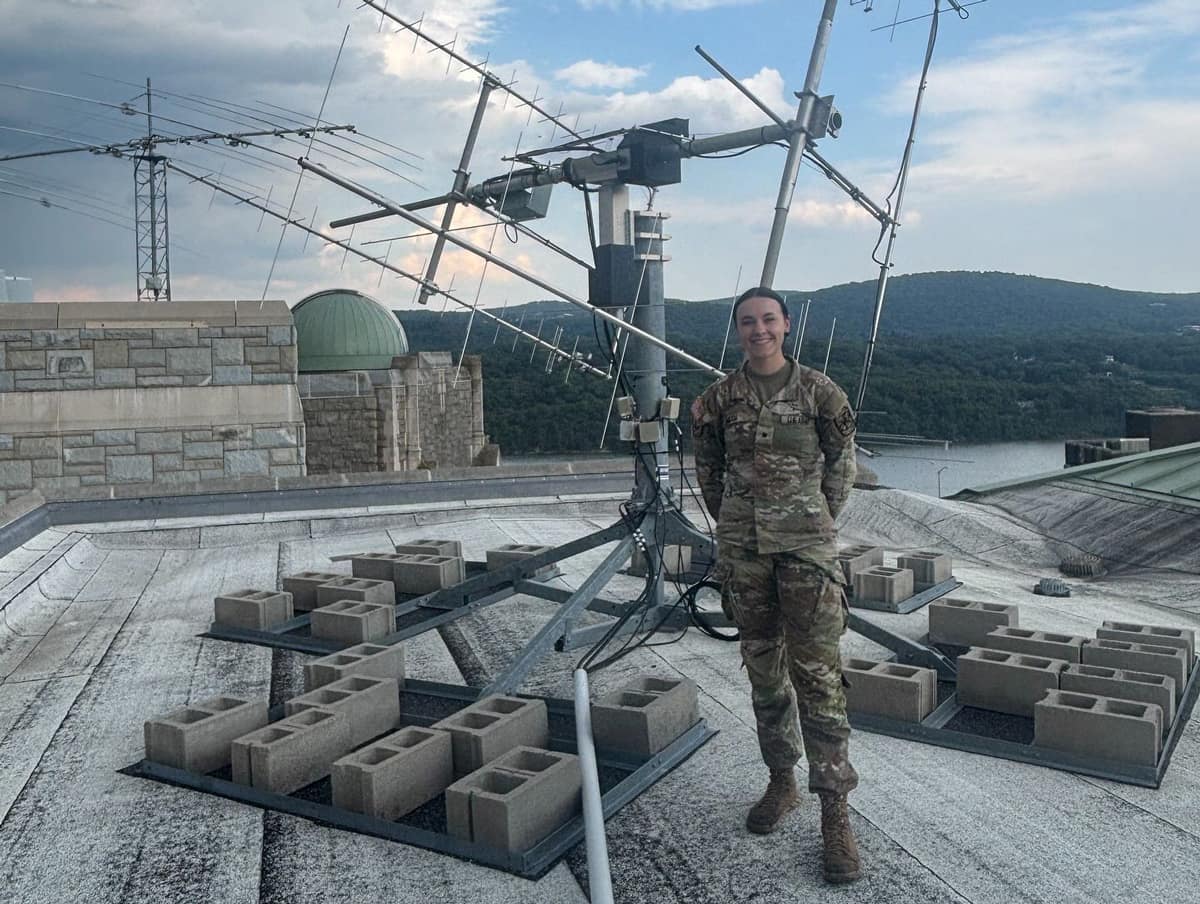
Embry‑Riddle Aeronautical University Army ROTC Cadet Tiffany Smith hopes to eventually become a spaceflight operations officer.
This summer, she gained valuable experience towards that goal after completing an internship focused on space weather and nuclear physics at the U.S. Military Academy at West Point in New York.
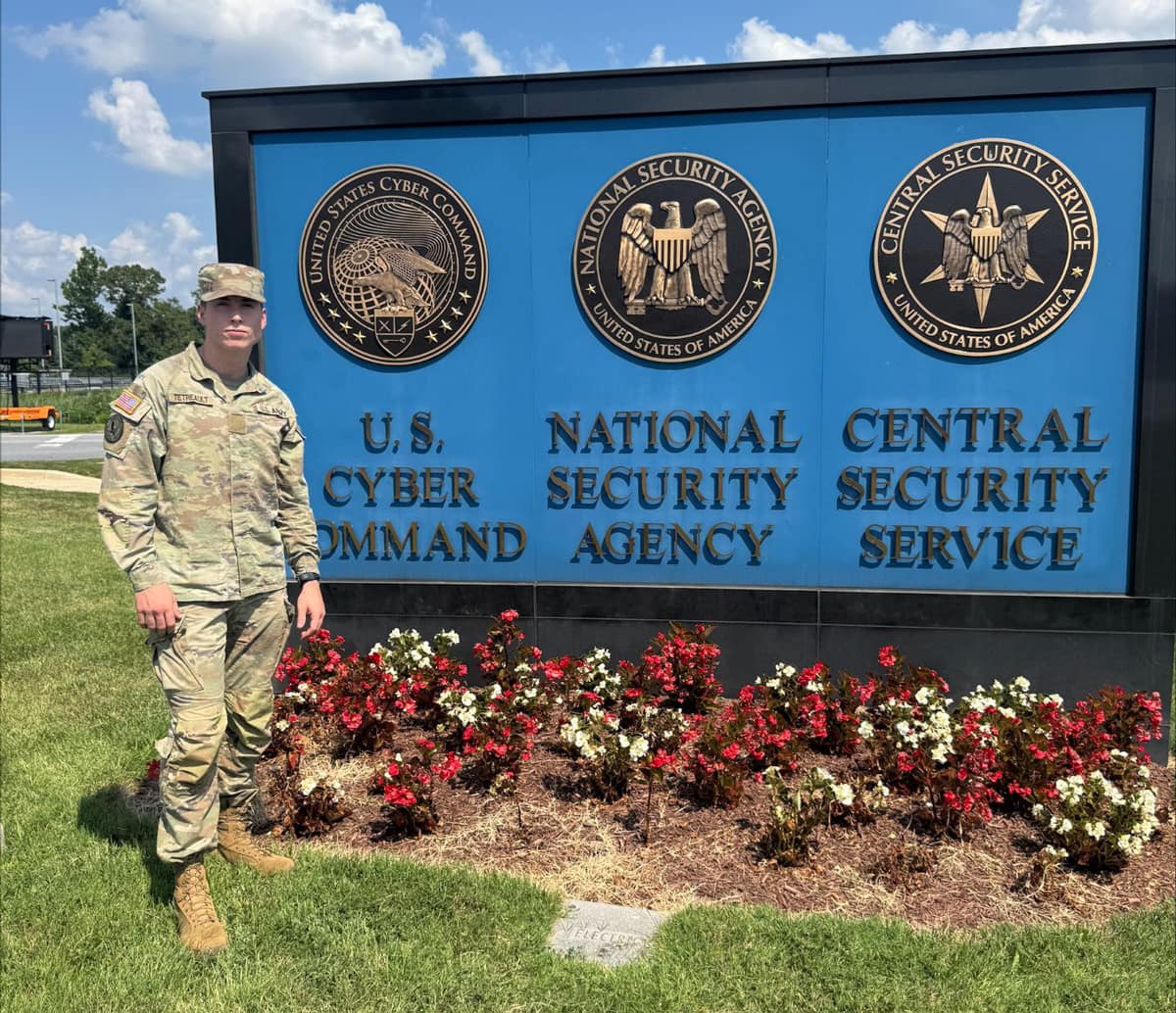
Cadet Ethan Tetreault, a senior Homeland Security and Intelligence student, worked at the National Security Agency in Fort Meade, Maryland. (Embry-Riddle/Army ROTC)
“I chose this internship as an opportunity to network with officers in U.S. Army Space and Missile Defense Command and to connect with other cadets who I may serve alongside in the future,” said Smith, a senior studying Space Operations. “The experience gave me valuable insight into what a career in space command could entail.”
Smith was one of 20 Embry‑Riddle Army ROTC cadets chosen for the U.S. Army ROTC Cadet Internship Program.
Cadets compete nationally for U.S. Army Cadet Command Internships across multiple sectors, including medical, engineering, cyber, research and public affairs, said Lt. Col. Jerome Reitano, professor of Military Science at Embry‑Riddle. They apply their leadership, technical and problem-solving skills in challenging environments, ranging from specialized training schools to research laboratories and federal agencies.
“Embry-Riddle cadets consistently rise to the challenge of these prestigious internships,” said Reitano. “They return with new skills, broader perspectives and a deeper commitment to service.
STEM and Research Experiences
Smith was one of four cadets selected for highly competitive technical internships, tackling national security challenges and advancing scientific research. She analyzed satellite and GPS data collected using an antenna on West Point’s campus. She then used specialized software to view and process the data, converting it into a Python script for analysis. Since the software was new to West Point, she also created a user guide to help future cadets and students use the program effectively.
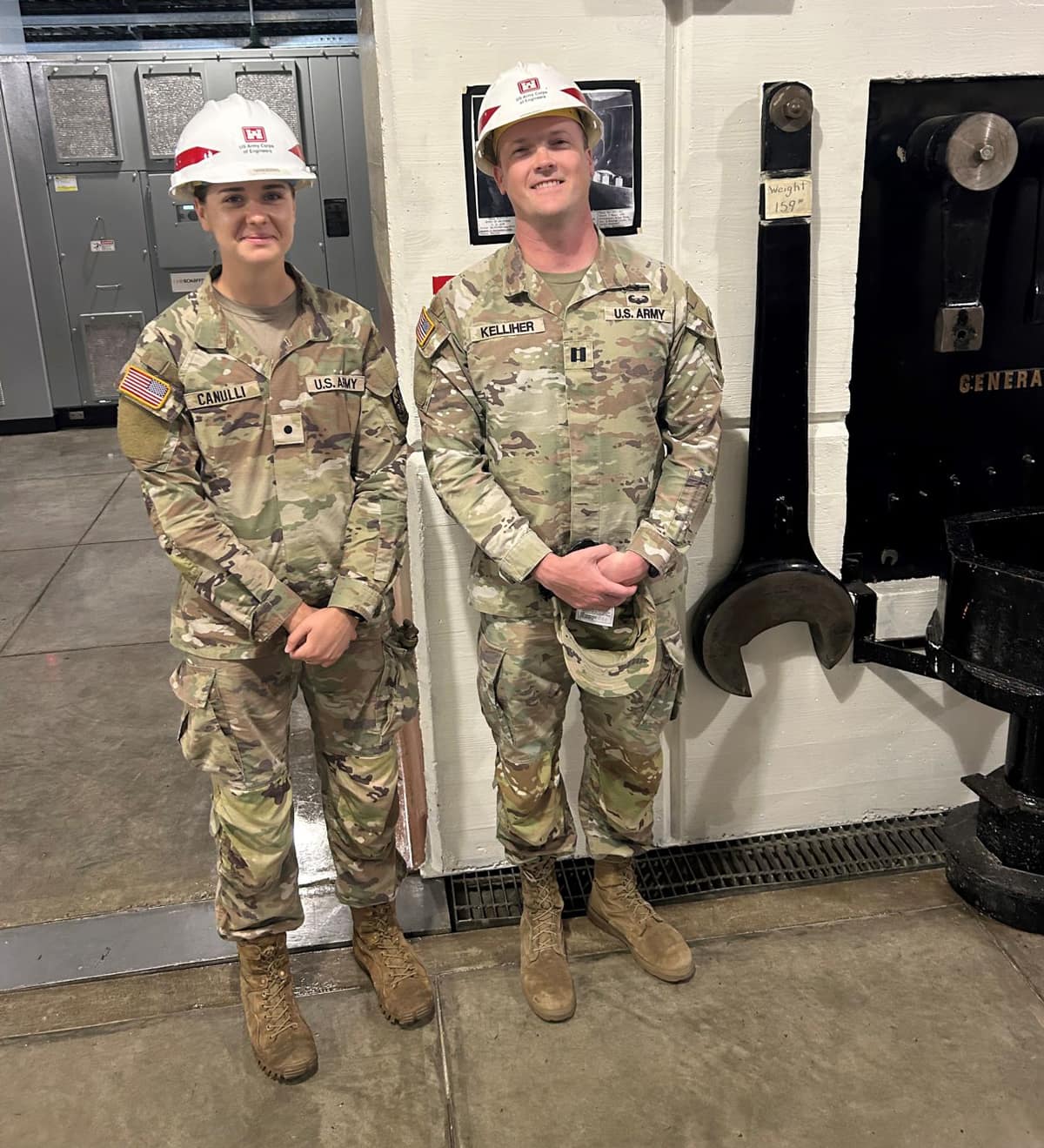
Embry-Riddle Army ROTC Cadet Gianna Canulli was chosen for the Army engineering internship program at Offutt Air Force Base in Nebraska. (Embry-Riddle/Army ROTC)
“During my internship, I developed strong problem-solving and adaptability skills while working with new software that frequently experienced technical issues,” said Smith. “I also gained experience in collaboration and leadership, as I was the only Space Sciences major on the team and frequently guided other interns through complex topics to ensure we all had a shared understanding of our research project.”
Cadet Ethan Tetreault, a senior Homeland Security and Intelligence student, was an intern at the National Security Agency in Fort Meade, Maryland. He worked on a research project that involved modeling, simulations and analysis of sensitive security information.
“I wanted to do the internship because I have always had interests tied to the NSA,” said Tetreault, who wants to work in military intelligence. “It was also an easy to way start the process on getting my top secret clearance.”
Cadets Carson Balboni and Lawrence Jordan participated in Army Research Lab internships in Maryland at Aberdeen Proving Ground and Adelphi Laboratory Center, respectively.
Engineering Experiences
Cadets Gianna Canulli and Austin Sellinger completed engineering internships, which provided them with exposure to large-scale infrastructure and international operations.
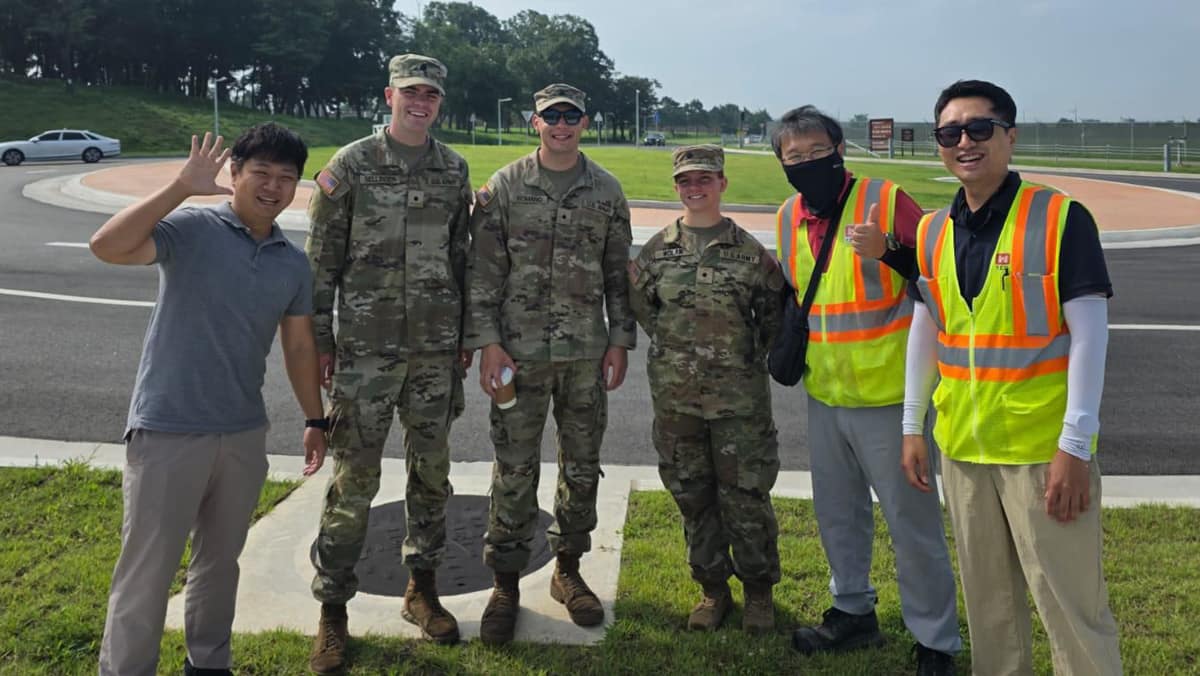
Cadet Jackson Faulkner completed the course at Fort Campbell, Kentucky, which is home to the 101st Airborne Division. (Embry-Riddle/Army ROTC)
Canulli, a senior Mechanical Engineering student, was chosen for the Army engineering internship program at Offutt Air Force Base in Nebraska. She shadowed Capt. Jake Kelliher of the U.S. Army Corps of Engineers, visiting levee rehabilitation projects in Iowa, South Dakota, and Nebraska, inspecting flood mitigation equipment and observing military construction sites on the base.
“I’m interested in applying for a position with the U.S Army Corps of Engineers, and this internship was a fantastic way to see how everything worked,” said Canulli. “I gained project management, budgeting and contracting skills and saw how the engineering teams design, build and implement different projects.”
Sellinger, a junior studying Aerospace Engineering, was selected for the engineering internship program at Camp Humphreys, South Korea, where he worked with the U.S. Corps of Engineers Far East District. There, he observed U.S. and allied engineering projects supporting joint operations.
“I spent time with project management, where I participated in meetings, a contractor RFP (Request for Proposal) kickoff and numerous site visits,” said Sellinger, who is from Auburn, Maine. “Following that, I spent time with the cost engineering branch and the construction branch, where I attended site visits nearly every day and was provided instruction on geotechnical and material testing equipment.”
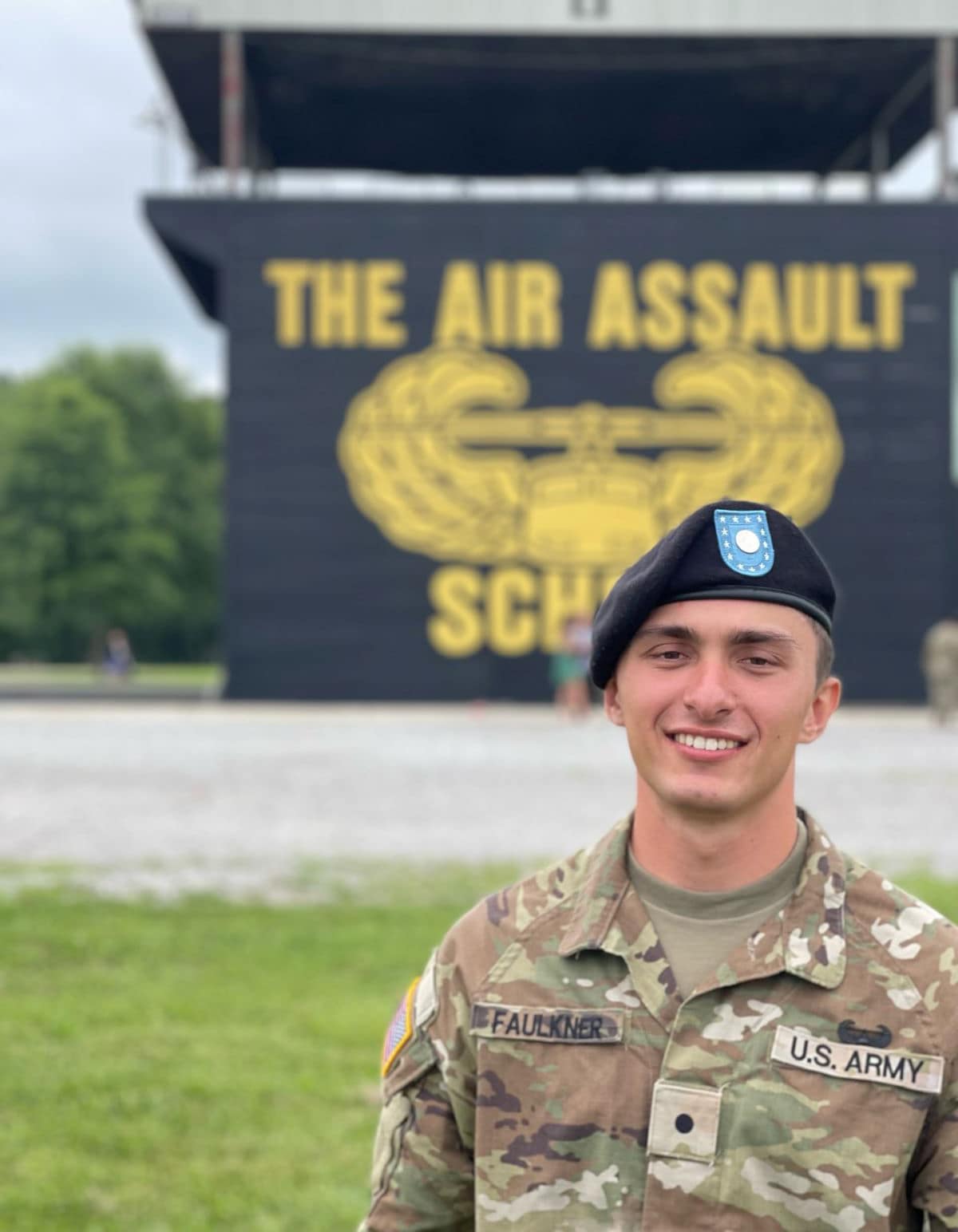
Cadet Jackson Faulkner completed the course at Fort Campbell, Kentucky, which is home to the 101st Airborne Division. (Embry-Riddle/Army ROTC)
Leadership and Training Opportunities
Five cadets served in leadership roles alongside active-duty Army units during Cadet Troop Leader Training (CTLT), a program designed to give cadets hands-on leadership experience with operational units. Cadet Brandon Gargac worked with a military intelligence unit in South Korea, while Cadet Justin Smith served with an aviation unit in Germany. In the U.S., Cadet Evan Vaughan joined an aviation unit at Hunter Army Airfield in Georgia; Cadet Johanna Archbold trained with an infantry unit at Fort Bragg, North Carolina; and Cadet Nathan Mills worked with an infantry unit at Fort Campbell, Kentucky.
Seven cadets mastered air-mobile combat operations, including helicopter operations and rappelling, through Air Assault School at several sites. Cadets Nicholas Albritton, Christopher Bromley and Paul Wood trained alongside U.S. Military Academy cadets at West Point. Cadet Harley Funderburk trained at Fort Benning, Georgia, while Cadet Barrett Cutshall attended training in Hawaii. Cadets Jackson Faulkner and Joseph Collins completed the course at Fort Campbell, Kentucky, which is home to the 101st Airborne Division.
Cadet Christopher DeCorte completed parachute training at Airborne School at Fort Benning, Georgia, and Cadet Sterling Stein traveled to Vermont for Basic Military Mountaineering School, which included training in alpine survival, climbing and cold-weather operations.
“Whether rappelling from helicopters, coding complex models, or shadowing Army officers abroad, Embry-Riddle cadets demonstrated the adaptability, technical expertise and leadership that define Army officers,” said Reitano. “These experiences will shape them into the Army’s next generation of leaders.”

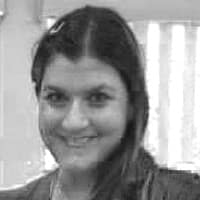 Melanie Stawicki Azam
Melanie Stawicki Azam